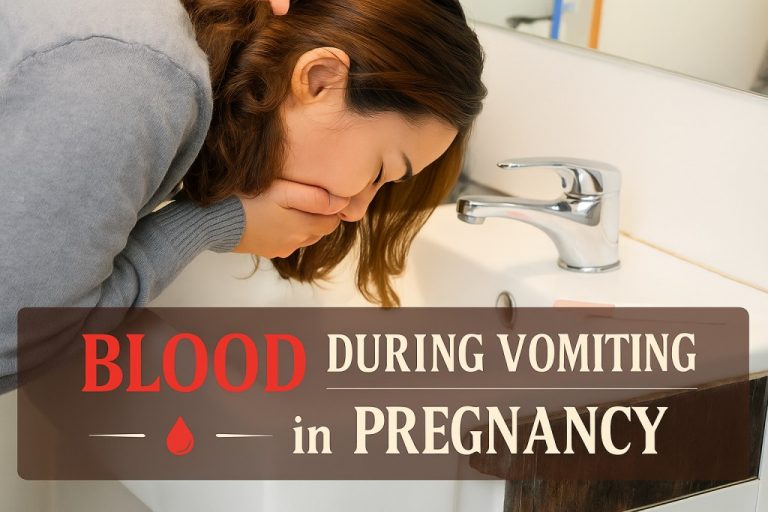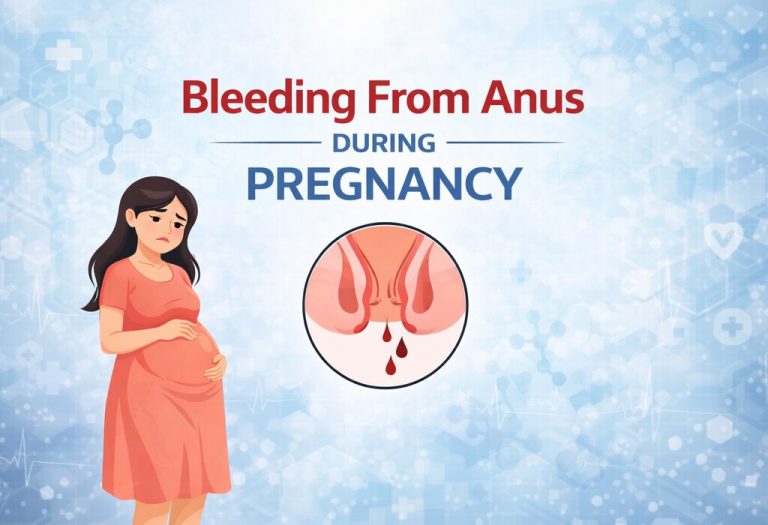Using Nasal Decongestant Spray during Pregnancy – Is It Safe?

Pregnancy often brings about various discomforts, including nasal congestion, due to hormonal changes and increased blood flow to mucous membranes. While nasal decongestant sprays can provide quick relief by shrinking swollen nasal passages, their safety during pregnancy remains a concern. Nasal spray in pregnancy requires careful consideration and consultation with a healthcare provider due to the potential risks posed to both maternal and fetal health. Nasal decongestant sprays are administered to the nasal passages as tiny drops of liquid. The ingredients in each nasal spray are quite different. They are commonly used for sinusitis and allergies.
Read on to learn the risks and benefits of using nasal decongestants for pregnancy.
Can You Use Nasal Spray in Pregnancy?
It is not recommended for anyone to use nasal sprays for sinusitis, colds, or allergies for a long time. These nasal decongestant sprays might make you addicted to them. Hence, the suggested period for usage is about 2-3 days.
The safety of the use of nasal spray during pregnancy is a crucial concern. It’s important to note that the type/category of nasal spray being used can significantly impact its safety. With the exception of natural saline nasal spray (which contains saltwater only), it is strongly advised that every pregnant woman consult a doctor before using any nasal decongestion spray.
Generally, nasal decongestion sprays work by constricting blood vessels in the nasal lining. However, after entering the bloodstream, these medications might also cause constriction in blood vessels in the placenta and womb. Hence, choosing the right nasal spray is very important (1).
Which Nasal Sprays Are Safe for Pregnant Women?
While a few medicines are unsafe during pregnancy, several FDA-approved nasal sprays cure sinus congestion. The FDA assigns pregnancy categories that are used in the Drug Formulary. These categories help expectant women differentiate between unsafe and safe nasal sprays. The following are the FDA-assigned categories.
- Category A – The medications in this category have been adequately studied. They do not demonstrate a risk to the unborn baby in the first trimester of pregnancy, and there is no proof of risk in the later trimesters.
- Category B – Research on animal reproduction does not indicate a risk to the unborn baby, and there is inadequate research done on expecting women.
- Category C – Animal reproduction research shows that the medicine hurts the unborn baby, and there is inadequate research done on humans. However, the potential advantages of the drug may permit the use of the drug in pregnant women regardless of the possible risks.
- Category D – There is potential evidence of risk in human babies based on adverse reaction data from research and studies conducted in humans. However, the possible advantages of the may permit the use of the drug in pregnant women regardless of potential risks.
- Category X – Foetal abnormalities have been shown by studies conducted on humans and animals. There is potential evidence of risk in human babies based on adverse reaction data from research and studies conducted in humans, and the risks involved in the use of the drug in pregnant women outweigh the potential advantages which the drug might have.
Before using nasal spray while pregnant, you should learn about the various categories of medicines. This will help you to understand which sprays contain saline and steroids, block blood flow to the sinuses or are absorbed into the body. Also, do not take any medicines without a doctor’s prescription.
Here are some examples of safe nasal sprays approved by the FDA during pregnancy.
- Prescription-only nasal spray: Rhinocort Aqua (Category B)
- Over-the-counter (OTC) nasal spray: Nasacort (Category C) (3)
- Another effective way to calm your sinuses is to use a saline nasal spray during pregnancy. These nasal sprays, made only from salt and water, may not always provide long-term relief. Still, they offer immediate relief by decreasing mucus build-up and moisturising dry nasal passages.
FAQs
1. What are the potential risks of using nasal decongestant sprays while pregnant?
The primary concern with nasal decongestant sprays is the potential for systemic absorption, which might affect blood flow to the placenta. Overuse can lead to rebound congestion, where nasal passages become more congested once the medication wears off, leading to a cycle of dependency.
2. How often can I use nasal decongestant sprays during pregnancy?
It is recommended that nasal decongestant sprays be used sparingly, at most once every 12 hours for up to three consecutive days. Prolonged use can lead to rebound congestion, particularly troublesome during pregnancy (2).
Nasal spray for pregnant women should be used with caution, as certain ingredients may not be safe for the developing fetus. Pregnant women should use a saline nasal spray to calm their sinuses. If you have to use other nasal decongestant sprays, it is highly recommended that you consult your doctor and get a prescription for it.
References/Resources:
1. Yau. W. P, Mitchell. A. A, Lin. K. J, et al.; Use of decongestants during pregnancy and the risk of birth defects; PubMed Central; https://www.ncbi.nlm.nih.gov/pmc/articles/PMC3816336/
2. MEDICINES IN PREGNANCY; The Women’s; https://www.thewomens.org.au/images/uploads/fact-sheets/Medicines-in-pregnancy-171018.pdf
3. What Medications Are Safe During Pregnancy?; Atlanta Women’s Obstetrics & Gynecology; https://awog.org/posts/pregnancy/what-medications-are-safe-during-pregnancy/; January 2022
Sneezing in Pregnancy
Snoring during Pregnancy
Pregnancy Nose Swelling
Rhinitis when Pregnancy
Nose Bleeding while Pregnancy
Was This Article Helpful?
Parenting is a huge responsibility, for you as a caregiver, but also for us as a parenting content platform. We understand that and take our responsibility of creating credible content seriously. FirstCry Parenting articles are written and published only after extensive research using factually sound references to deliver quality content that is accurate, validated by experts, and completely reliable. To understand how we go about creating content that is credible, read our editorial policy here.




































